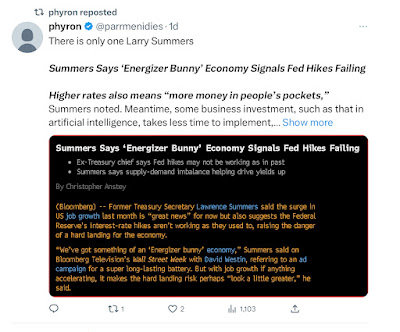On October 26, 2023, the US Bureau of Economic Analysis published the latest US National Accounts figures – Gross Domestic Product, Third Quarter 2023 (Advance Estimate) – which showed that “Real gross domestic product (GDP) increased at an annual rate of 4.9 percent in the third quarter of 2023”. The June-quarter 2023 growth rate was 2.1 per cent. There was broad-based growth in all the expenditure components, including those that would be most sensitive to interest rate rises. My prior, of course, is that the interest rates would not significantly reduce growth in the short run, whereas mainstream New Keynesian theory considers interest rate rises to be an effective tool in moderating total spending, and, in turn, reducing inflation. The reality does not support the mainstream proposition. Consecutive national accounts releases from the US, however, have shown that aggregate expenditure is resilient in the face of the interest rate increases....
Bill Mitchell | Professor in Economics and Director of the Centre of Full Employment and Equity (CofFEE), at University of Newcastle, NSW, Australia

